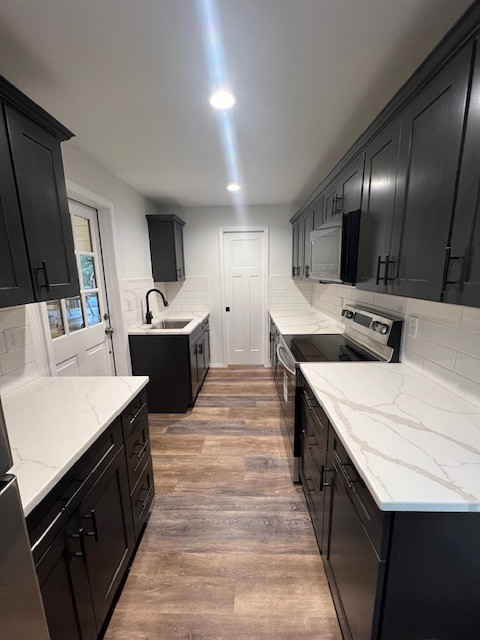Serving the Portland-Metro area and beyond: OR CCB #240305 | WA #HARBOHL777
Basics for an ADU conversion
March 8, 2024

Converting a space into an ADU (Accessory Dwelling Unit) involves several steps, which may vary depending on local regulations and the specific characteristics of the space you're converting. Here's a general overview of the process:
- Research Local Regulations: Before starting any conversion work, check with your local zoning laws and building codes to ensure that converting the space into an ADU is permitted. Some areas have strict regulations regarding ADUs, including size limitations, parking requirements, and permit processes.
- Design and Planning: Determine the layout and design of your ADU. Consider factors such as the size of the space, the number of rooms, plumbing and electrical requirements, and any necessary permits.
- Obtain Necessary Permits: Obtain any required permits from your local government before starting construction. This may include building permits, plumbing permits, electrical permits, etc. Failure to obtain the necessary permits could result in fines or having to undo the work done.
- Prepare the Space: Clear out the space and make any necessary repairs or renovations to prepare it for conversion. This may involve removing existing fixtures, walls, or other structures, as well as addressing any issues with plumbing, electrical, or structural integrity.
- Construction: Depending on the scope of the project, this step may involve framing, insulation, drywall installation, flooring, electrical and plumbing work, and any other necessary construction tasks.
- Installation of Fixtures and Finishes: Install fixtures such as sinks, toilets, showers, kitchen appliances, lighting, and flooring. Choose finishes such as paint, tiles, countertops, and cabinetry to complete the space.
- Utilities Connection: Connect the ADU to utilities such as water, sewer, electricity, and gas. Ensure that all connections are up to code and meet safety standards.
- Final Inspections: Once construction is complete, schedule final inspections with the appropriate authorities to ensure that the ADU meets all building codes and regulations.
- Occupancy: Once the ADU passes final inspections and all necessary permits are obtained, it can be occupied either by tenants or as a guest house, depending on your intended use.
It's important to consult with professionals such as architects, contractors, and building inspectors throughout the process to ensure that your ADU is safe, legal, and built to code. Additionally, consider consulting with a real estate agent or appraiser to understand how the addition of an ADU may affect the value of your property.
And good luck!
